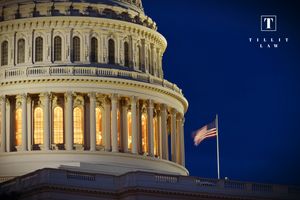Prospective contractors may raise pre-award protests challenging solicitations that contain flawed evaluation methodologies. While the government has discretion in selecting the appropriate evaluation methodologies for fulfilling its procurement needs, the stated evaluation scheme must generally provide a meaningful basis for differentiating between offerors, while supporting a reasonable award decision. Pre-award protests that challenge the government’s evaluation methodologies are distinct from post-award protests filed due to flawed agency evaluations or disparate treatment of offerors. Such pre-award challenges are raised in response to the agency's planned approach to evaluate one or more solicitation factors, rather than a failure to adequately evaluate the proposals.
While it is within the agency’s discretion to select an appropriate method to assess offeror pricing, the agency may not use an evaluation method that produces a flawed or misleading result. In B-409872.2, the GAO sustained a pre-award bid protest because it found that the solicitation’s price evaluation methodology could produce misleading evaluation results when analyzing the competitiveness of price proposals. The solicitation issued by the Defense Commissary Agency (DeCA), contemplated an indefinite-delivery requirements contract for fresh fruit and vegetables for military commissary stores in South Korea, Japan, and Guam. The commissary stores provided groceries and household items to members of the military and other authorized patrons. The incumbent contractor responsible for fulfilling the fresh fruit and vegetables requirement for the commissary store protested the solicitation terms for allegedly containing a flawed pricing evaluation methodology.
The evaluation methodology at issue required offerors to propose a patron savings discount percentage for certain high-volume core items. The patron savings discount percentage was calculated by comparing the prices of these core items to like items from comparable private retail stores in the local area and was fixed for the duration of the contract. Instead of evaluating the offerors’ pricing based on this fixed patron savings discount percentage, the solicitation required offerors to apply the fixed patron savings discount to variable core items pricing proposed for a particular week. This application of the fixed patron savings discount percentage to variable proposed pricing for a particular week opened the door for potential price gaming where an offeror with a lower patron discount could potentially be evaluated more favorably than an offeror with a higher patron discount. In other words, an offeror could artificially lower variable proposed pricing for the particular week in question and apply a lower patron discount percentage, and still manage to propose a lower price evaluation price point than an offeror that proposed a higher overall patron savings discount percentage.
Since in the performance of the contract, the unit pricing would be updated on a weekly basis, but the patron savings discount would remain constant, such an evaluation could produce misleading results and thus lead to unfavorable procurement outcomes contrary to the government’s interests. During the protest, the government stated that by using the price evaluation methodology provided in the solicitation, it intended to award the contract to the offeror proposing the higher patron discount percentage. However, despite the government’s intentions, the GAO found that the price evaluation methodology stated in the solicitation could be reasonably interpreted as establishing a “snapshot-in-time” pricing methodology as the basis of the agency’s award decision. Since establishing such a methodology could lead to the government paying higher prices, contrary to its stated intentions, the GAO sustained the protest. The GAO found that the solicitation’s price evaluation scheme was flawed as stated and directed the government to revise the price evaluation scheme.
Unreasonable agency evaluation criteria and methodologies prejudice offerors and lead to unfair procurement outcomes. While the wide discretion that agencies are afforded in selecting their preferred evaluation criteria and methodologies may seem difficult to overcome, contractors should nevertheless challenge solicitations containing such provisions as impacting their interests in the procurement. While bidding on solicitations, contractors should ensure that the stated evaluation methodologies provide an accurate comparison of proposals to allow the government to determine which prospective contractor offered the most advantageous pricing to the government. By proactively raising concerns about flawed evaluation methodologies during the solicitation phase, contractors can improve their chances of success while promoting a fair and competitive procurement process.
This Bid Protests Insight provides a general summary of the applicable law in the practice area and does not constitute legal advice. Contractors wishing to learn more are encouraged to consult the TILLIT LAW PLLC Client Portal or Contact Us to determine how the law would apply in a specific situation.





